Community: The Secret to Stopping Deforestation in Guatemala
The forest concessions of the Maya Biosphere Reserve have boasted a near-zero deforestation rate for 20 years.
Home / Regions / Central America & Mexico / Page 16
Mexico and Central America are world leaders in granting land rights to local and indigenous people—a crucial step in protecting forests. But even with significant gains in rights, forest communities are facing threats from agricultural expansion, illegal loggers, and drug traffickers.
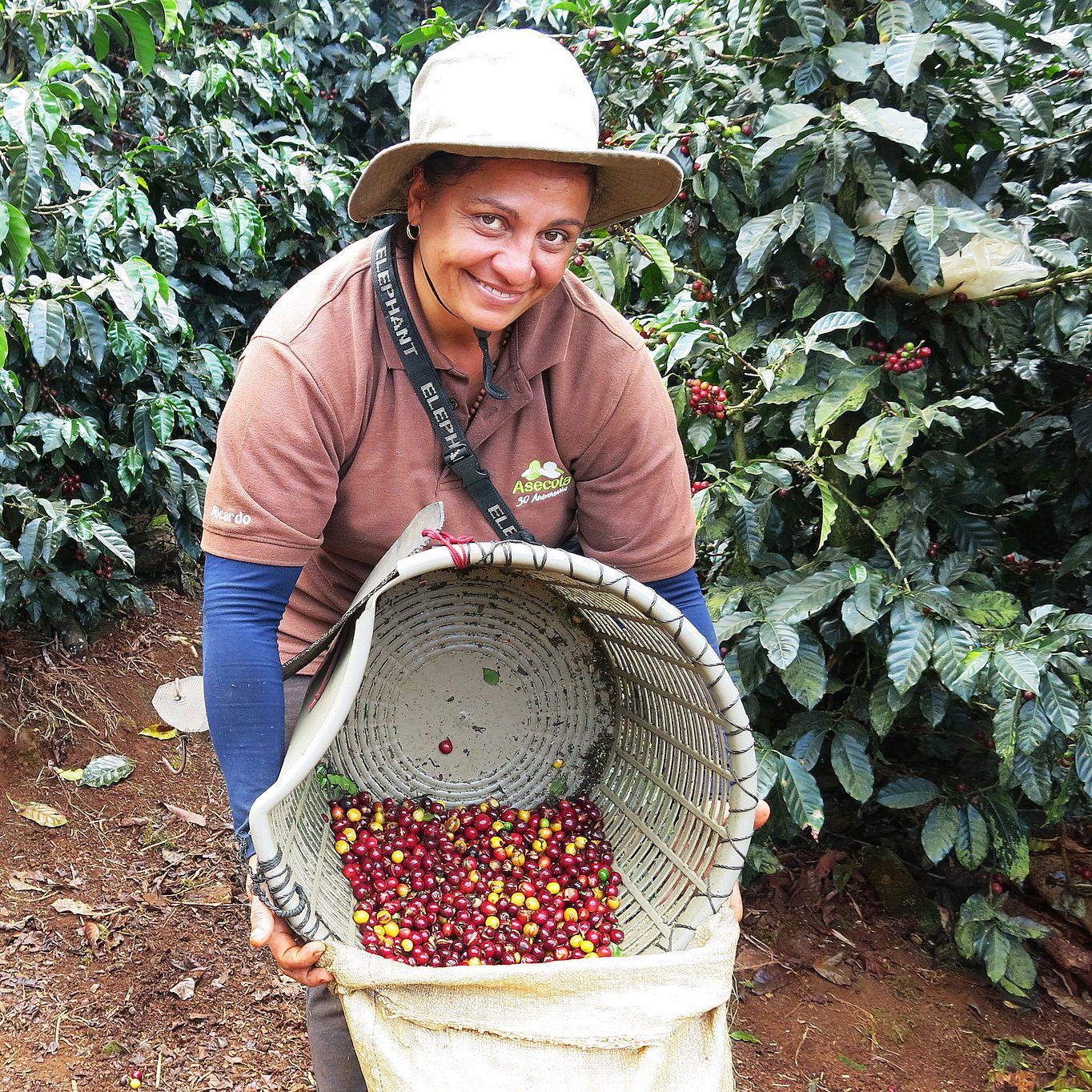
Farmers in Mexico and Central America are already dealing with the effects of climate change: shorter growing seasons, unpredictable rainfall, and a surge in plant diseases and pests. Crops like coffee and bananas could become rare delicacies in the future without bold climate action—but the livelihoods and well-being of farming communities are in jeopardy now.
Our impacts in Mexico and Central America are nothing short of stunning: In areas managed by our partner communities in Guatemala’s Maya Biosphere Reserve, for example, logging has remained at almost zero since 2001—remarkable given that adjacent areas suffer some of the worst deforestation rates in the Americas.
![]()
equivalent annual emissions of greenhouse gases removed from the atmosphere
We provided technical assistance to a group of coffee farmers in Oaxaca, Mexico, who launched an agroforestry project to remove 130,000 tons of greenhouse gas emissions (the annual emissions of 27,000 cars) from the atmosphere over 30 years through reforestation of degraded land.
![]()
have studied our environmental curriculum in Mexico and Guatemala
We not only provide training and curricula to teachers in southern Mexico and Guatemala, but we also help build local networks so educators can sustain this vital environmental education work in their communities for years to come.
In a region hard hit by climate change, the Rainforest Alliance focuses on advancing community forestry, sustainable agriculture, ecotourism, and environmental education to defend vulnerable landscapes and support rural communities.
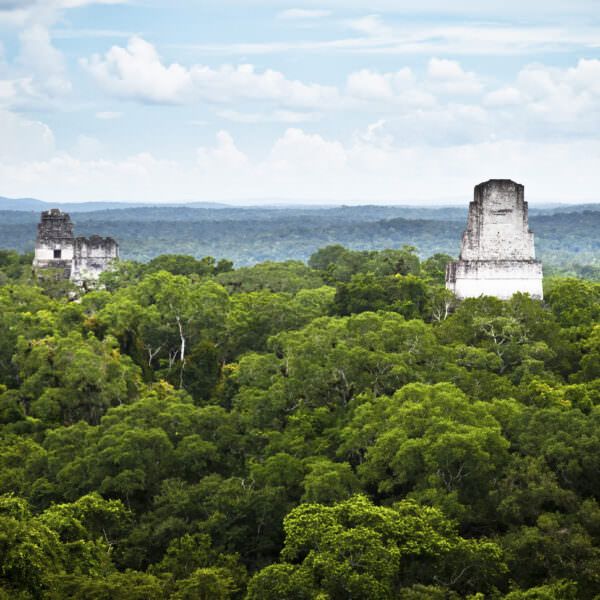
The forest concessions of the Maya Biosphere Reserve have boasted a near-zero deforestation rate for 20 years.
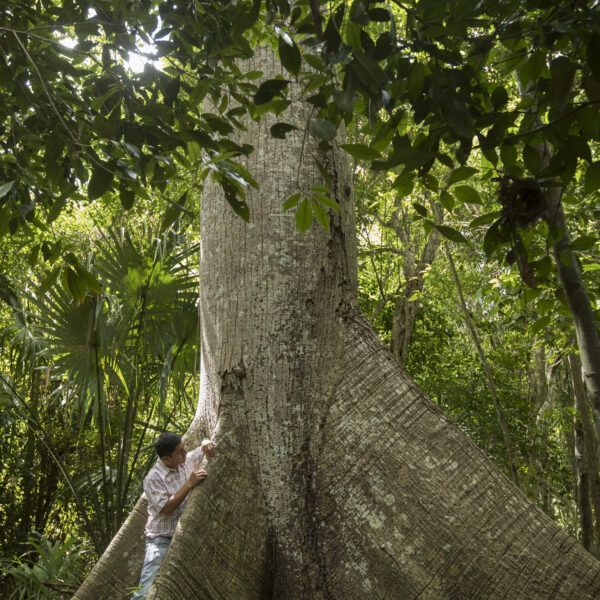
We are working to grow Mexico’s domestic market for sustainably produced products.
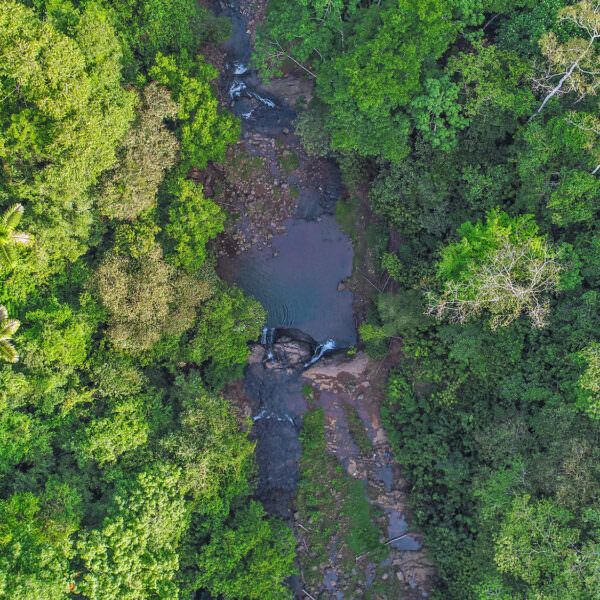
This farm doesn't just grow bananas–it's producing biodiversity, fresh air, and stronger soils.

Sustainably harvested wood is at the heart of this new business run by indigenous Maya women.

In an effort to conserve Guatemala’s wealth of natural resources and support the country’s efforts to mitigate the impacts of climate change, the new Climate, Nature and Communities in Guatemala (CNCG) Project was launched today. CNCG will invest $25 million in Guatemala over the next five years between 2013 and 2018. This is an initiative […]
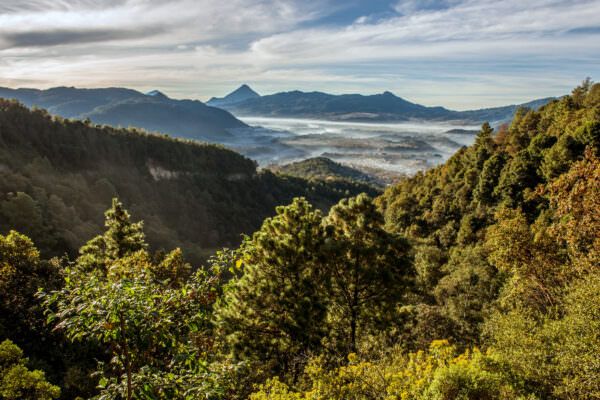
Firefighting and rainwater harvesting helps communities protect forests and improve livelihoods.... Continue Reading

This document profiles five major tourism businesses in Latin America that are working towards sustainability. Four hotels and one tour operator that have participated in the Rainforest Alliance’s sustainable tourism program present their main challenges and achievements, including their relationships with indigenous cultures, participation in community development activities, efforts to conserve biodiversity, and their inclusion […]

Harvesting Epiphytic Bromeliads: An Opportunity for Cloud Forest Conservation Project Summary Tropical montane cloud forests (TMCFs) are a vital source of freshwater for local and downstream communities in the tropics. TMCFs are home to an immense amount biodiversity, yet they are seriously threatened by deforestation. Their recovery and maintenance relies upon appropriate management and the […]... Continue Reading

Before the Maya Biosphere Reserve (MBR) was established in the Petén in 1990, the area was plagued by illegal logging, which focused on removing only the most valuable tree species, such as mahogany. At the same time, civil conflict and displacement resulted in significant in-migration to the region, sparking extensive conversion of forests for agricultural […]

Sustainable management of the world’s natural resources is shifting from an option to a vital necessity. Increasing evidence attests to the fact that sustainable resource management practices can promote economic development and livelihood improvement for communities. This case study adds to this growing of body of evidence by profiling the work of Rainforest Alliance assisting […]